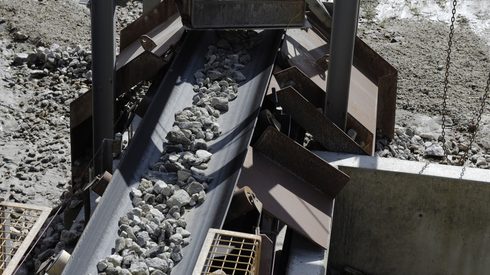The proposal has been drafted by the Vietnam Ministry of Finance, but is not yet official policy as it is awaiting final government approval, according to key billet trading sources.
News of the proposed export duty came after the ministry released a statement on Wednesday July 14 announcing that it will adjust import and export taxes across a range of commodities in an attempt to stabilize domestic price levels.
“Some are saying the tax may get implemented from August, similar to Russia’s export tax, but it is too soon to say,” a South Asian billet trader told Fastmarkets.
This is the second time that the imposition of an export tax in Vietnam has been discussed, but it seems likely that it could end up being implemented this time given that “Vietnam’s national coffers are quite depleted due to their Covid-19 fight,” a Singaporean trading source said.
Sources said that, if the proposed duty came into force, it could become difficult for Vietnam to continue exporting billets.
“It’s going to kill the export billet market if it happens,” and Asian billet buyer source told Fastmarkets. “A 5% tax is around $35 per tonne at current prices, and buyers won’t take the risk.”
Fastmarkets understands that, from July 14, a major Vietnamese mill has been including a clause in billet sales contracts stipulating that the buyer must absorb the 5% export tax if it is brought in before shipment of the cargo.
The implementation of the tax would not necessarily force cfr China billet prices to jump up, however, given that buying prices in China are dictated by the country’s domestic prices rather than supplier offers, the billet buyer source said.
“Large Vietnamese billet exporters may not be very competitive any more if this export tax happens – a $34 per tonne tax is a pretty [significant] amount. We may see other parts of the world do this too in the future,” a second South Asian trading source said.
“And if they can’t export a lot of billet, then that might also affect Vietnam’s buying of imported scrap – particularly deep-sea cargoes,” he added.
Vietnam is a major exporter of steel billet, selling several cargoes per month to key buyer markets including China, the Philippines and Indonesia.
China imported 248,322 tonnes of steel billet from Vietnam in the first five months of 2021, accounting for 41.8% of China’s total billet imports over that time period, according to China’s General Administration of Customs.
In 2020, China imported 679,244 tonnes of Vietnamese billet, a 531.4% year-on-year increase, according to customs data.
Two major Vietnamese mills were heard to have offered 3sp 150mm billet earlier this week at $683 per tonne fob, with a deal to China heard closed at this price on Wednesday, which would equate to $705-707 per tonne cfr China.
Fastmarkets’ weekly price assessment for steel billet, import, cfr China, was $675-691 per tonne on July 9.
Vietnam’s Ministry of Finance has also proposed a tax reduction “to an appropriate level” for some imports, especially given that domestic goods have almost no protection needs, the government said on July 14.
In 2020, steel imports to Vietnam amounted to 13.26 million tonnes, with a value of more than $8 billion, down 8.92% in volume terms from 14.44 million tonnes 2019, the Vietnam Steel Association said.






